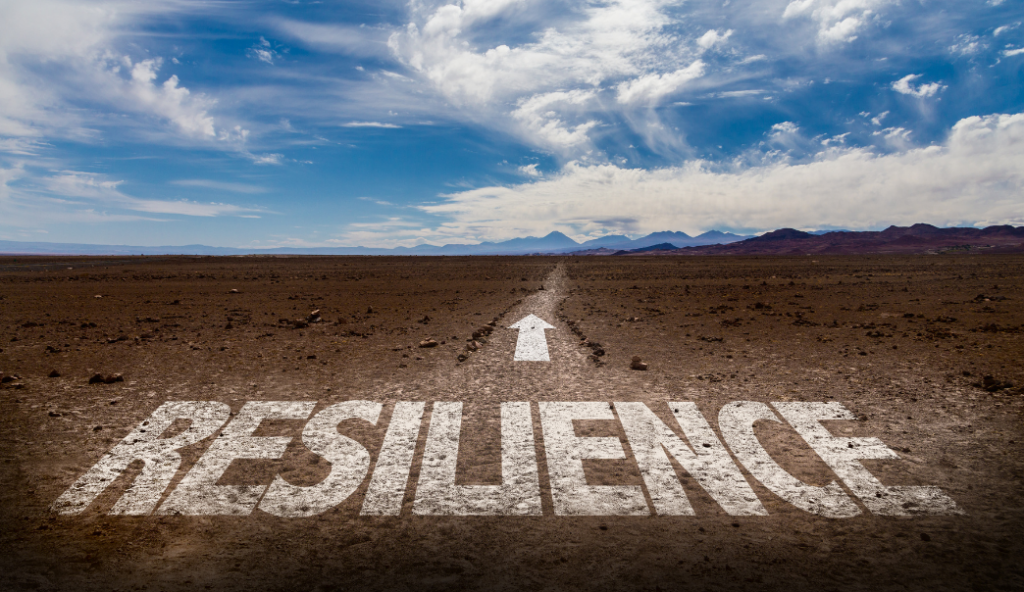Building a resilient brand has become more critical in today's fast-paced and unpredictable world. Times of crisis can strike at any moment, and during these challenging periods, a brand's true character is tested. However, with the right strategies in place, brands can survive and thrive in the face of adversity.
In this article, we will explore various aspects of building a resilient brand in times of crisis, from crisis management to employee engagement, from proactive communication to post-crisis analysis. Let's dive in and uncover the secrets to navigating turbulent times successfully.
Crisis Management for Brands
Resilient brands must have a well-defined crisis management plan when a crisis hits. This plan is a compass guiding the brand through the stormy seas of uncertainty. One crucial aspect of crisis management is to act swiftly.
Time is of the essence, and brands must address the crisis head-on, acknowledging the issue and taking proactive steps to resolve it. Transparent communication is vital during this phase, both internally and externally. By keeping stakeholders informed and expressing empathy, brands can maintain trust and credibility.
However, crisis management goes beyond just reacting to a crisis. It also involves being prepared for potential crises that may arise. Brands should anticipate and identify vulnerabilities, allowing them to develop contingency plans accordingly. By proactively identifying potential risks, brands can minimize a crisis's impact and effectively navigate challenging situations.
In addition to preparedness, assembling a crisis response team is crucial for effective crisis management. This team should consist of individuals with the necessary skills and expertise to handle different aspects of the crisis. From public relations and legal experts to communication specialists and senior executives, each member plays a vital role in managing the situation.
A Well-Prepared Team can Quickly Respond to Crises
Moreover, crisis management is not just about resolving the immediate crisis. It also involves learning from the experience and implementing measures to prevent similar situations in the future. Brands should conduct thorough post-crisis evaluations to identify areas for improvement and implement necessary changes. This continuous improvement approach ensures that brands are better equipped to handle future crises and maintain their reputation.
Furthermore, crisis management extends beyond the internal operations of a brand. External stakeholders, such as customers, suppliers, and partners, also significantly manage crises. Brands must prioritize open and transparent communication with these stakeholders, informing them about the situation and the steps to address it.
Companies can foster trust and collaboration by involving external stakeholders in crisis management, strengthening their brand resilience.
Crisis management is a critical aspect of brand management. It requires swift action, preparedness, and the involvement of a well-prepared crisis response team. By effectively managing crises, brands can minimize the negative impact, strengthen their reputation, and build trust with stakeholders. Through continuous improvement and transparent communication, brands can navigate the stormy seas of uncertainty and emerge stronger than ever.
Maintaining Brand Integrity During Challenging Times
The Power of Consistency
One of the key challenges during a crisis is maintaining brand integrity. Amid the chaos, it's easy for brands to lose their way and deviate from their core values. However, during these challenging times, brand consistency becomes even more crucial. Brands must stay true to their identity and principles, demonstrating unwavering commitment to their values. Brands build trust and foster loyalty by consistently embodying what the brand stands for, even in the face of adversity.
Consistency is not just about the visual elements of a brand, such as logos and color schemes. It extends to the brand's tone of voice, messaging, and overall customer experience. Brands that maintain consistency in these areas are more likely to resonate with their audience and create a lasting impression. In times of crisis, when emotions are heightened, consumers seek stability and reliability.
In delivering a consistent brand experience, brands can provide their customers with a sense of familiarity and comfort through providing consistency.
The Role of Authenticity
In times of crisis, consumers seek authenticity. They want to connect with brands on a deeper level and feel that they are being sincere and genuine. Brands must communicate openly and honestly, ensuring their messages reflect their true intentions. Authenticity builds trust and establishes a solid foundation for the brand's resilience. By being transparent about challenges and sharing their journey, brands can create meaningful connections with their audience.
Authenticity goes beyond just the words a brand uses. It encompasses the actions and decisions they make as well. Brands that demonstrate authenticity through their behavior and decision-making process are more likely to gain the trust and loyalty of their customers. This means taking responsibility for mistakes, admitting vulnerabilities, and actively working towards improvement. By showing vulnerability, brands can humanize themselves and connect with their audience on a deeper level.
While brand integrity and authenticity are essential, it's equally important for brands to adapt their marketing strategies during a crisis. The usual promotional tactics may not be appropriate during challenging times, and brands must be sensitive to the current climate. Empathy and understanding are crucial when crafting messages and campaigns. By resonating with their audience and addressing their needs and concerns, brands can forge deeper connections and foster loyalty.
During a crisis, brands should focus on providing value to their customers rather than solely promoting their products or services. This could involve offering helpful resources, supporting relevant causes, or providing educational content. By shifting the focus from sales to support, brands can demonstrate their commitment to their customers' well-being and build long-term relationships.
Moreover, brands should actively listen to their audience and engage in meaningful conversations. This means monitoring social media platforms, responding to customer inquiries and feedback, and addressing concerns promptly. By showing that they genuinely care about their customers' opinions and experiences, brands can strengthen their reputation and foster a sense of community.
Maintaining brand integrity during challenging times requires a combination of consistency and authenticity. By staying true to their values and communicating openly, brands can build trust and loyalty. Additionally, adapting marketing strategies to provide value and customer support is crucial for long-term success. Ultimately, brands that prioritize their customers' needs and emotions will emerge stronger from any crisis.

Case Studies of Resilient Branding
Examining case studies of brands successfully navigating through crises can provide valuable insights and inspiration. By analyzing their approaches and strategies, we can learn from their experiences and apply those lessons to our brands. These case studies serve as a blueprint for building resilience and showcase the power of effective crisis management.
Nike's Branding Journey
One particularly fascinating case study is the renowned sporting brand Nike. In the face of controversies and allegations, Nike demonstrated its resilience by addressing the issues head-on and taking a stand. Instead of shying away from the challenges, Nike leveraged its influence and platform to support causes aligned with its values. By partnering with organizations dedicated to social justice and equality, Nike turned crises into opportunities for positive change.
This bold move resonated with its target audience and attracted new customers who admired the brand's commitment to making a difference. By staying true to its purpose and engaging with its audience authentically, Nike solidified its position as a resilient brand that stands up for what it believes in.
Mcdonalds Changing Face
Another notable case study is the fast-food giant McDonald's. Throughout its history, McDonald's has faced various challenges, including health concerns and negative public perception. However, McDonald's responded to these crises by adapting its offerings and introducing healthier menu options.
McDonald's transformed its brand image by listening to consumer demands and recognizing the need for change. In addition to menu innovations, the company also invested in sustainable practices, such as using eco-friendly packaging and sourcing ingredients responsibly.
These initiatives not only addressed the concerns raised by the public but also positioned McDonald's as a responsible and forward-thinking brand. By embracing change and continuously evolving, McDonald's emerged stronger from its crises, proving its resilience in adversity.
Coca-Cola's Makeover
Furthermore, let's explore the case of Coca-Cola, a globally recognized beverage brand. In the past, Coca-Cola has encountered health concerns and environmental impact challenges. However, the company responded by diversifying its product portfolio and introducing healthier beverage options.
By expanding its range to include low-sugar and sugar-free alternatives, Coca-Cola demonstrated its commitment to addressing consumer demands for healthier choices. Additionally, the brand invested in sustainable packaging solutions and launched initiatives to reduce its carbon footprint. These efforts helped Coca-Cola regain consumer trust and positioned the brand as a leader in sustainability within the beverage industry. Coca-Cola successfully overcame crises and strengthened its brand reputation through its resilience and adaptability.
Apple's Resilient Brand
Another fascinating case study is the tech giant Apple. Despite being a highly successful brand, Apple has faced its fair share of challenges. One notable crisis was the publicized battery issues in some of their iPhone models. Apple acknowledged the problem and offered affected customers free battery replacements.
This transparent and customer-centric approach helped Apple regain trust and showcased the brand's commitment to customer satisfaction. Additionally, Apple has consistently focused on innovation, regularly releasing new and improved products that captivate consumers worldwide. By continuously pushing boundaries and staying ahead of the competition, Apple has proven its resilience and ability to thrive despite adversity.
Developing a Proactive Crisis Communication Plan
Effective communication is at the heart of building a resilient brand. In times of crisis, transparent and proactive communication can make all the difference. Brands must develop a crisis communication plan to respond promptly and effectively. This plan should outline key communication channels, protocols for sharing updates, and processes for managing stakeholder expectations.
Social media, in particular, plays a significant role in crisis communication today. Brands must leverage these platforms to share timely updates, provide reassurance, and address concerns. However, it's essential to balance being present and overwhelming the audience. Brands should provide valuable information and support rather than inundating their followers with excessive updates. By utilizing social media strategically, brands can strengthen their relationship with their audience and build resilience in times of crisis.
Leveraging Social Media in Crisis Response
The Power of Listening
Social media platforms offer brands unique opportunities to listen to their audience's concerns and sentiments during a crisis. By monitoring conversations and engaging in active listening, brands can gain valuable insights into the prevailing sentiment and adjust their crisis response accordingly. This enables brands to address concerns effectively and demonstrate their commitment to their audience's well-being.
Check out this quick talk by Simon Sinek on Resilient Brands:
Engaging with Empathy
During a crisis, brands must empathize with their audience and provide support. Social media allows brands to engage personally, promptly responding to individual comments and messages. By demonstrating empathy and compassion, brands can show that they genuinely care about their audience's well-being.
Beyond listening and engaging, social media can also be a platform for positive stories and inspirational content. By sharing uplifting stories and showcasing acts of kindness, brands can contribute to a sense of unity and hope, reinforcing their resilience and leaving a lasting impression on their audience.
Explore the Path to Success with CorEthos
Thank you for journeying with us through this exploration of ideas. Your presence here is a testament to a shared passion for reimagining business, and it resonates with the very essence of CorEthos: bringing humanity back to business.
Perhaps the curiosity that brought you here still burns brightly, yearning for further discovery. In that case, we invite you to delve into our blog, where each article opens new doors to understanding, insight, and growth. They are tailored to leaders like you, eager to unravel the complex tapestry of today's business world.
If you find yourself intrigued by the delicate science behind communication and leadership, why not embark on a journey of discovery with our newsletter? Subscribing is like opening a treasure chest filled with wisdom that connects you to the essence of collaboration and community.
Intensify Your Leadership Journey with Our Mastermind Program
Our newly launched Mastermind Program provides a focused setting for tackling challenges like honing effectiveness, inspiring your team, and mastering the art of delegation. It's a unique space where business acumen meets human-centered values, delivered with the same quality and integrity you expect from CorEthos. Ready to dive deeper into your leadership potential?
We Would Love to Get to Know Your Challenges Better!
Challenges in business? We see them not as stumbling blocks but as opportunities for transformation. Your unique path awaits, and it begins with a complimentary consultation with CorEthos. We'll build bridges over obstacles and forge a trail to success, leveraging our three foundational pillars.
Your adventure with CorEthos doesn't have to end here. Let's continue to build, learn, and grow together, reflecting on what makes your business uniquely human. We are your compass, guiding you through the challenges and celebrating the triumphs. Let's begin this exciting journey today.



